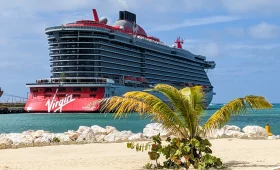Coffee in Brazil is a significant part of the country’s culture, economy, and history. Brazil is the largest producer and exporter of coffee in the world, accounting for approximately one-third of the global coffee production.

Brazil has a long-standing tradition of coffee cultivation, dating back to the early 18th century when coffee plants were brought to the country. The favorable climate, with its rich soil and ample rainfall, proved to be ideal for coffee cultivation, allowing Brazil to become a dominant player in the global coffee market.
There are several key regions in Brazil known for their coffee production. The largest coffee-producing state is Minas Gerais, followed by Espírito Santo, São Paulo, and Bahia. Each region has its own unique characteristics, including variations in altitude, climate, and soil composition, which contribute to the diverse flavors and profiles of Brazilian coffee.
Brazilian coffee is primarily of the Arabica variety, which is known for its mild, smooth flavor with low acidity. Robusta coffee is also grown in Brazil, but it is less prominent. The country’s coffee industry includes both small-scale family farms and large commercial plantations.
Harvesting coffee in Brazil typically occurs between April and August, although the exact timing can vary depending on the region. Many farms employ a method called selective picking, where only ripe cherries are harvested by hand, ensuring optimal quality. After harvesting, the coffee cherries are processed to remove the outer layers and extract the coffee beans. This can be done through either the dry or wet processing method.
Once processed, the coffee beans are usually dried and sorted before being sold to domestic or international buyers. Brazil exports a significant portion of its coffee production to countries around the world, including the United States, Germany, Italy, and Japan.
Coffee plays a prominent role in Brazilian culture. It is a common social beverage enjoyed throughout the day, and coffee breaks are an important part of work and social interactions. In addition to the traditional brewed coffee, Brazil is also known for its unique style of coffee known as “cafézinho,” which is a small, strong, and sweetened espresso-like drink.
Visitors to Brazil often have the opportunity to visit coffee farms and learn about the coffee production process firsthand. These tours provide insights into the history, cultivation, and preparation of coffee, allowing visitors to appreciate the rich coffee heritage of Brazil.
In conclusion, coffee is deeply ingrained in Brazilian culture and is a vital part of the country’s economy. Brazil’s favorable climate, extensive coffee plantations, and commitment to quality have made it the world’s leading producer and exporter of coffee.



